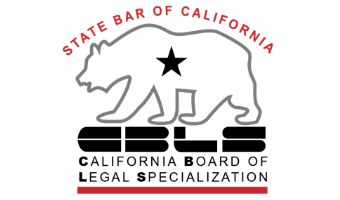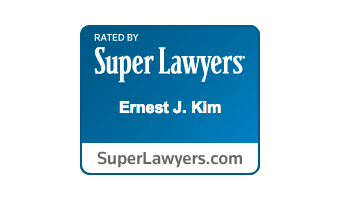MEDIATION SERVICES
Many people may be surprised to learn that litigating a probate or trust case in court does NOT mean the judge immediately makes a decision for one side or the other. Litigating a case in the California probate courts can take years before you get to a trial. Before a trial date is ever set, the parties will usually have to go to court multiple times to attend hearings and report the status of the matter to the judge, and take care of procedural and court requirements first.
Once the first papers to start the litigation matter have been filed in the court, the parties may file motions asking for certain types of relief. This motions practice could take several months. Then if the case still moves forward and has not been disposed of based on the motions, the parties will conduct “Discovery.” Discovery is the court supervised process by which the parties get to “discover” all relevant information from each other and third parties that may affect the outcome of the controversy. This formal exchange of information is done through written interrogatories and requests, written requests for production of documents, subpoenas to third parties, depositions (an in person question and answer session under oath with a court reported noting down every word to create a record of the exact answers given), expert witness testimony, and inspections of documents, places or items.
For example, in a Will or Trust contest case where one party believes the document is a forgery, the party might ask a series of written questions they would like to have answered about the origins of the document (like who was there when the document was signed, who made the document, where was it found, who found it, who discussed it with the Decedent, etc.). From those answers they might have to issue subpoenas to have additional third party witnesses (notaries, drafting services or lawyers, etc.) appear and give information about their interactions with the Decedent or their involvement in preparing the suspect documents. The party might request that all unsigned drafts or older versions of the document be produced for inspection, and that all known authentic handwriting exemplars of the person be produced for comparison to the questioned Will or Trust by a forensic document examiner, etc.. They might subpoena emails and all computer hard drives that ever housed the document for professional inspection. A forensic document examiner who can testify at trial also would also need to be retained, and they would need to travel to the court or other location where the original documents are stored for a supervised inspection.
Discovery of the facts in a case is an important step before trial and it is extremely time consuming and expensive. It could take a lawyer several weeks, or months of time to find, obtain, and go through all the available information about even one questioned document. Each deposition of a witness could take a whole day or longer with lawyers for all sides, videographers and court reporters paid by the hour. Extrapolate from this for your particular type of case, and you quickly get the idea that litigation can be very, very expensive before you ever get to trial.
Contesting a Will or Trust for lack of mental capacity usually also requires extensive medical records to be examined by a medical expert, and doctors and nurses may need to be subpoenaed and deposed. Friends, relatives, and neighbors might all be witnesses. It can take many months to get all of the discovery finished for a case, especially if the other side is not interested in responding meaningfully to questions and impedes the discovery process, in which case discovery can take years to finish.
At some point between completing the discovery phase and setting a trial date for the matter, the judge is highly likely to require the parties to participate in mandatory settlement efforts like mandatory settlement conferences or court ordered mediation so that the parties can try to reach a settlement before the judge has to hear the trial on the matter. This is because judges are extremely busy and if there are even small parts of your case that could be resolved without the judge’s time, those issues should taken off of the judge’s tasks to save the court’s time. Judges do not like to have their time wasted deciding minor issues the parties could have resolved amongst themselves.
Many people have not been sufficiently prepared for how long litigation can last, what it can cost, or that the judge is going to order the parties to discuss potential resolution with each other before trial. If they had known sooner, they might have started out with the mediation process earlier, perhaps even before litigation started and before spending tens of thousands or hundreds of thousands to file their petitions and conduct all of the pre-trial motions and discovery processes, to see if they could agree on a way to resolve their differences.
Attorneys Catherine Kim and Ernest Kim offer their services as mediators to help families try to reach a resolution. Mediation does not result in either party getting everything they wanted; But it gives the parties a chance to get the four C’s:
- A chance to COMMUNICATE and understand what the other party is doing;
- usually for far less financial COST than active litigation;
- during which they might craft a solution together that could be more CREATIVE than a judge’s win/lose decision;
- so they have some CONTROL over the financial costs incurred in litigation, as well as the outcome.
It’s important to remember that the judge who decides your case doesn’t know you, has never met the person who left behind the questioned documents or assets, and doesn’t know your family history. A judge must make a decision and choose a winner and a loser after hearing just a few hours, or at most a few days of testimony. And your case is one of hundreds a judge has to hear. In the limits of a court environment, it’s difficult to paint the complete picture of everything that went on during family related incidents that may have occurred across a span of several years in some cases.
It’s also important to remember that there are many important differences between a typical trust/probate litigation, and a “normal” civil lawsuit you may already have experienced such as from a business dispute or car accident/injury case. In those civil cases, a judge was typically looking at events that occurred within a very limited time span (i.e. the 60 seconds during which the other driver was speeding or ran the red light and hit your car), and they can usually hear the facts from all the witnesses who will come to court to speak about what happened. However, in a probate/trust litigation matter, most of the time the star witness has died or is incapacitated, and that person and their mental condition or their wishes is the real subject of the dispute, but they are not available to testify. So the judge will have to make the best decision they can based on the limited information that is available to them on the day/s of trial, often without ever hearing any court testimony from the most important witness.
In addition to these inherent difficulties and costs of litigation that must be managed, trust and estate litigation often ends up draining the very assets that are in dispute and even the “winner” may still be left at the end with much less money left in the trust or estate, than if a prolonged litigation could have been avoided in the first place. This bears repeating: In probate and trust litigation, even winning can result in less assets remaining at the end.
The emotional toll that months or years of trust and probate litigation can take on your personal health, family dynamics, and finances must also be considered. For these and many other reasons, we strongly recommend that litigation not be the first response whenever possible, and that alternatives to litigation be attempted, but approached without signaling weakness or lack of resolve.





